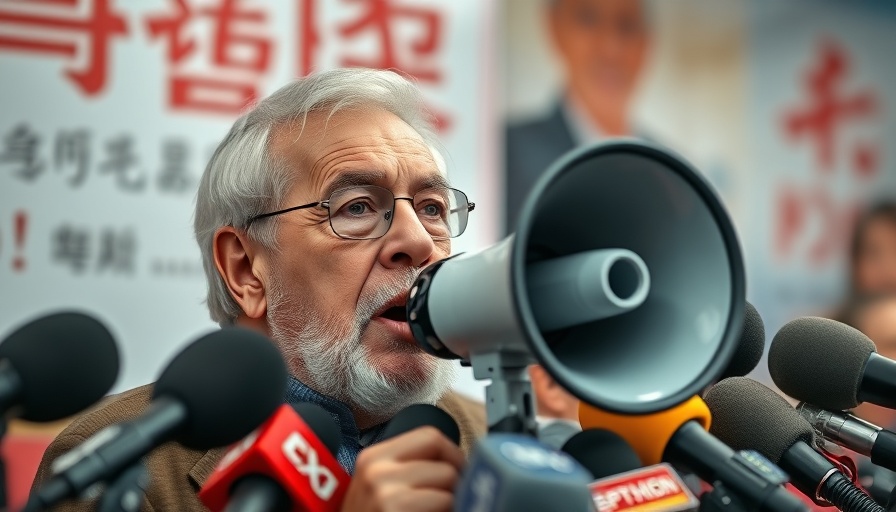
Rebuilding Ties: A New Chapter in U.S.-South Africa Relations
The recent return of Ibrahim Rasul, South Africa's former ambassador to the United States, heralds a significant moment for diplomatic relations between the two nations. After being expelled by the Trump administration, Rasul was welcomed back in Cape Town with overwhelming support, as hundreds gathered to celebrate his return. His remarks upon arrival underscored the complexities of South African diplomacy and its ongoing struggle against narratives of division and conflict.
In 'Exiled South African ambassador calls for U.S. ties reset,' the discussion dives into diplomatic relations, exploring key insights that sparked deeper analysis on our end.
A Call for Reconciliation
In the wake of his expulsion, which he linked to comments made during a controversial webinar, Rasul's call for "resetting" U.S.-South Africa relations reflects a desire for constructive engagement rather than confrontation. Highlighting a shared history of collaboration, he stressed that ties have often been forged not in the corridors of power, but among the people. This grassroots connection, he argues, should be the foundation for rebuilding a relationship that has endured numerous challenges.
Political Perspectives: Racial Division and Foreign Policy
Rasul's comments also touched upon sensitive issues pertaining to race and foreign policy, particularly regarding the Israeli-Palestinian conflict. South Africa's ongoing advocacy for Palestinian rights has historical roots, underscoring its commitment to fighting racial injustice on a global scale. He acknowledged that while there is a need for a stable relationship with the United States, South Africa must also maintain its stance against injustices that resonate with its own struggles against apartheid.
The Role of the International Court
A recurring theme in Rasul's statement was the role of international institutions in upholding justice. His administration’s ongoing case against Israel in the International Court of Justice represents a broader commitment to solidarity with those facing oppression. This resonates with many in the South African community who view international alliances as essential in the fight against racial and social injustices.
Counterarguments: Diverse Opinions on U.S. Relations
While Rasul's sentiments were met with enthusiasm by his supporters, opinions are divided within South Africa regarding the U.S. relationship. Critics argue that the diplomatic ties should not overshadow local challenges. Concerns about sovereignty and domestic issues arise, leading to debates about whether fostering closer ties with the U.S. might complicate South Africa’s ability to maintain an independent voice in international affairs.
What Lies Ahead: Predictions for U.S.-South Africa Relations
As South Africa navigates this diplomatic reset, analysts predict several outcomes that could alter the geopolitical landscape. Economic collaborations, cultural exchanges, and strategic partnerships are vital areas identified for potential growth. Greater engagement could lead to increased investment opportunities in South Africa, benefiting its economy and infrastructure. However, it is imperative to maintain South Africa's sovereignty while fostering these international dialogues.
The Importance of Advocacy for African Rights
Rasul’s insistence on remaining steadfast in advocating for African rights is critical, especially as global attention shifts. This relationship requires vigilance to protect against influences that undermine social justice narratives. South Africa must leverage its position as a leader in the African Union to champion causes that resonate across the continent.
A Call to Action for South Africans
Rasul's return serves as a powerful reminder of the ongoing journey toward social justice on both domestic and international fronts. South Africans are urged to engage in civic discussions surrounding foreign policy, comprehend their nation's role within a larger global framework, and participate in advocating for human rights. This holistic involvement can pave the way for a dignified and equitable relationship with the U.S.
 Add Row
Add Row  Add
Add 




Write A Comment